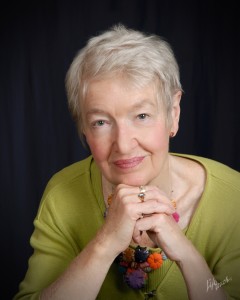Freedom of Speech Starts With Talking
By Martha Steger
Journalism groups as well as other organizations were quick to jump on the “Je Sui Charlie” bandwagon after the Charlie Hebdo tragedy. When I received a mass-distributed NFPW email seeking signatures for a freedom-of-speech (including freedom from self-censoring) message, I immediately thought of NFPW members (including a lot of us in VPC) who wouldn’t feel free to sign our individual names, let alone our job titles for fear of what employers might say or do. I say “our” because as a state employee for 25-plus years, I vented my rage a couple of times by writing letters-to-the-editor that I never mailed: the status of my position was one that could be “fired at will” without explanation.
I emailed NFPW that what I’d like to see it do is start a national conversation on the subject of freedom of expression. I’ve heard tourists returning from China and Cuba proudly proclaim, “They don’t have freedom of speech!” as though our own “free” speech doesn’t carry its own parameters beyond which we dare not reach. We ban hate-speech – and might at some point consider strengthening such laws, which France is looking at now; the Associated Press also has a policy of not running offensive images. This begs the question raised by New York Times columnist David Brooks (I paraphrase), “Do we have the right not to be offended in a democracy?”
A blogger referred to as “tallbloke” online puts it another way: “Hang on, if we’re backing free speech, we need to put our big-boy pants on and allow idiots to call us (whatever), if they really are determined to demonstrate their idiocy in public.”
The non-simplistic concept of freedom of speech/expression has always carried deep perspectives, though it takes terrible incidents to remind us of its implications. I’m of a generation that included my parents’ recoiling in horror on May 4, 1970, as we watched on TV members of the Ohio National Guard fire into a crowd of unarmed college students protesting the Vietnam War; four students were killed, nine wounded, in what was later reported as 67 rounds of ammunition in 13 seconds. It was an event that further sparked public opinion over the U. S. role in the Vietnam War.
A forty-something non-VPC member (who doesn’t wish to be quoted) and I have emailed the free-speech issue back and forth. We agree that at some point laws within a country’s boundaries — such as those governing freedom of expression — may be irrelevant outside of those boundaries. We in the U. S. are beginning to feel the pain of other nations with significant numbers of people feeling disenfranchised. (It’s a bit off-topic but noteworthy that in the first weeks of 2015, when Europe saw the militarization of its police units, there was talk in the U. S. of demilitarizing ours.)
My friend points out that this tiny world of close neighbors has a real population – and thankfully diverse neighborhoods – for which free speech is despicable blasphemy, even if few believe killing is an apt punishment. So the conversation might begin with, “Do we redraft free speech to accommodate the exclusion of religious blasphemy”? Do we circumspectly say, “In our country free speech is free speech; in your country other laws apply”?
She raised this question of me: “To take on a cross-cultural conversation means to include people who would carve out blasphemy from free speech and those who would not. Are VPC and NFPW really up for this or just cranking something out to be timely and ‘relevant’?”
I didn’t have an answer for her, but I do hope we’ll keep the conversation going.


